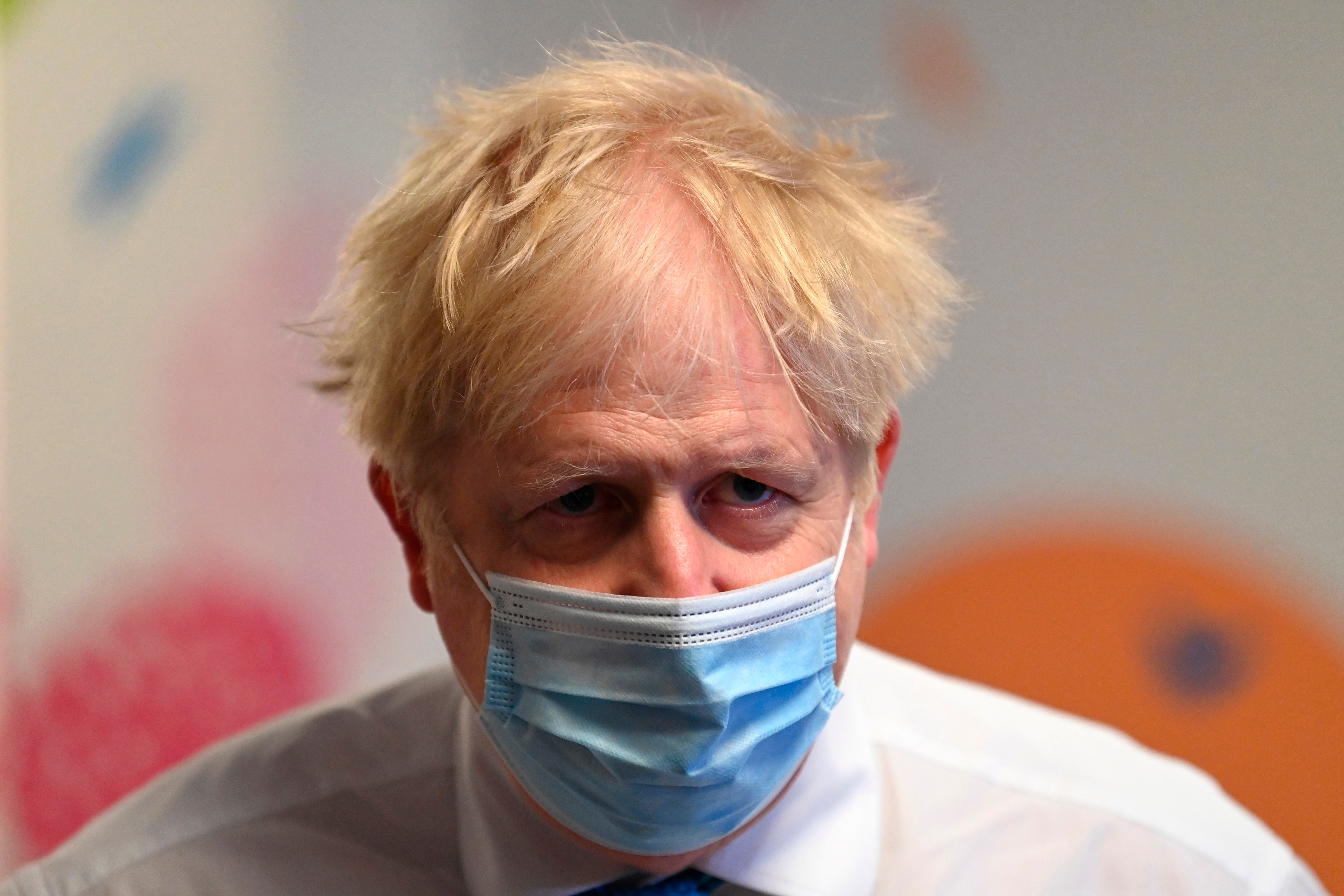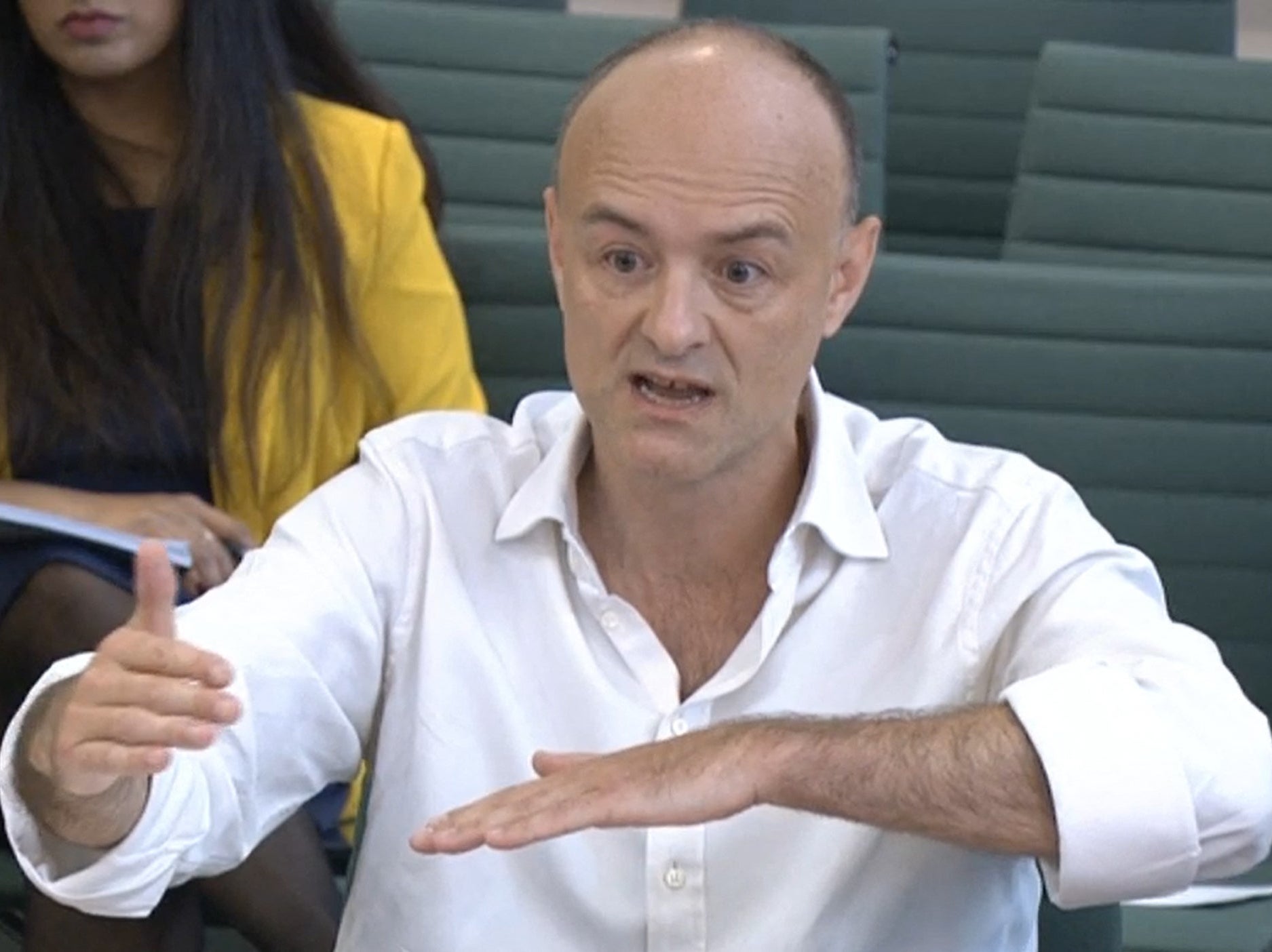What will it take for Boris Johnson to realise what a mess Brexit is?
It was when he caught Covid-19 and ended up in intensive care that reality struck home. What would need to happen to Johnson for him to understand the mess Brexit is for business? Writes Chris Blackhurst


While the country has been grappling with the pandemic, businesses have been dealing with an extra burden. Brexit.
According to Boris Johnson, the difficulties they’re encountering in dealing with the new post-EU arrangements amount to “teething problems”.
What, though, does he know? This, after all, is a prime minister who, according to his former chief adviser, was completely dismissive of Covid-19, referring to it as “another scare story like the swine flu”. So unconcerned was Johnson, apparently, that he was prepared to be injected with a dose of the virus on live TV.
It was when he caught Covid-19 naturally and ended up in intensive care, that reality struck home. It’s a shame that Johnson does not have a family firm that he could spend time with, especially one that relies on trade with the EU. Only then, might he realise what a mess Brexit is, how it was not thought through properly, and how British business is suffering.
Official figures show a drop in EU trade of almost a quarter at the start of 2021, compared with the same period three years ago. Far from the “minimal” disruption claimed by Johnson and his colleagues, the figures confirm that for those who deal with the customs union, Brexit is coming at a heavy cost.
The Office for Budget Responsibility, or OBR, expects the additional obstacles to trade with the EU to reduce the size of the British economy by about 4 per cent compared with when we were in the EU, with the full impact taking as long as 15 years to be seen.
This conclusion comes on top of the finding of another study, from the London School of Economics, that 61 per cent of UK firms were reporting difficulties due to leaving the EU – causing rising bills, higher prices for consumers and reducing their competitiveness.
Businesses are suffering, the economy is damaged, there are issues everywhere, but that’s the sort of situation that Boris seemingly adores
Almost a quarter, 24 per cent, of businesses that export their products to the bloc reported that Brexit caused sales to the EU to fall, while one-third said imports from the Continent are reduced.
Some 37 per cent of UK firms reported delays as a result of Brexit, said the LSE’s Centre for Economic Performance. More than one-third, 36 per cent, said they faced additional customs and administrative costs.
What that means in practice is illustrated by an item in Personnel Today. It reports that UK food manufacturers are battling with each other to recruit emergency specialists who can assist with the extra paperwork and new rules. These interim Brexit experts can command £1,000 a day. At the same time, companies are urgently scrambling to retrain their existing logistics and supply chain staff to dealing full-time with the new requirements.
A whole new breed of Brexit trade adviser is springing up. Laurence Frantzis, director at New Street Consulting Group, said: “As EU trade and customs issues are still relatively new for most UK businesses, this is an area where employment opportunities are available for those who can reskill quickly enough or have existing experience.”
Said Frantzis: “Brexit is causing problems every day to food and drinks businesses on a scale not seen before. The challenge for businesses now is to retrain people quickly enough to solve all those new trade and supply chain issues.
“But with the pool of available trade and customs experts getting smaller and smaller by the week, businesses still looking to fix issues are racing against the clock in order to get the right personnel in place. As these issues are likely to continue for some months yet, businesses that have yet to source the right experts could quickly find themselves falling behind their rivals.”
At the same time, British companies are short of staff to replace those EU workers who have gone home. Across sectors, they are all reporting gaping holes in their workforces.

They’re having to hire Brits to replace them, often with difficulty – either the locals do not want the work or they are simply not up to the task. The chief executive of a group of upmarket restaurants and gastro-pubs told me last week, with a look of horror on his face, how he was interviewing for a manager because the previous one had left to head back to the EU. He saw a British woman who, when he asked about her experience told him she’d never actually been in a restaurant.
The chairman of a leading player in the video gaming industry said his company was woefully lacking in tech exponents. They too, had gone. The firm could not find any suitable replacements.
While all this and more is going on, the Confederation of British Industry, which is meant to represent businesses and lobby for their concerns but increasingly seems detached, puts out a strategy paper called Seize the Moment. It talks about “early mover advantage” and how Covid-19 and Brexit are “twin shocks” to the economy. To go with the other long-standing, barely addressed woes, among them a high street collapse, the not fit-for-purpose business rates system, stifling bureaucracy, the sheer difficulty of getting anything done, lack of support from banks, creaking transport, the cumbersome planning system, the lack of qualified, motivated school leavers and graduates. But hey, the CBI implores: make “big bets”.
Read More:
It feels out of touch with what is occurring right now, on the ground. To be fair, it’s a document urging “vision” as it says. But even so, if you were Boris, and he’s even half like the picture painted by Dominic Cummings, it’s vindication, proof of his courage and genius.
Businesses are suffering, the economy is damaged, there are issues everywhere, but that’s the sort of situation that Boris seemingly adores.
One crisis may be ending, but another remains. As the prime minister, sorry the CBI, would say, ignore all that and seize the moment.
Join our commenting forum
Join thought-provoking conversations, follow other Independent readers and see their replies
Comments